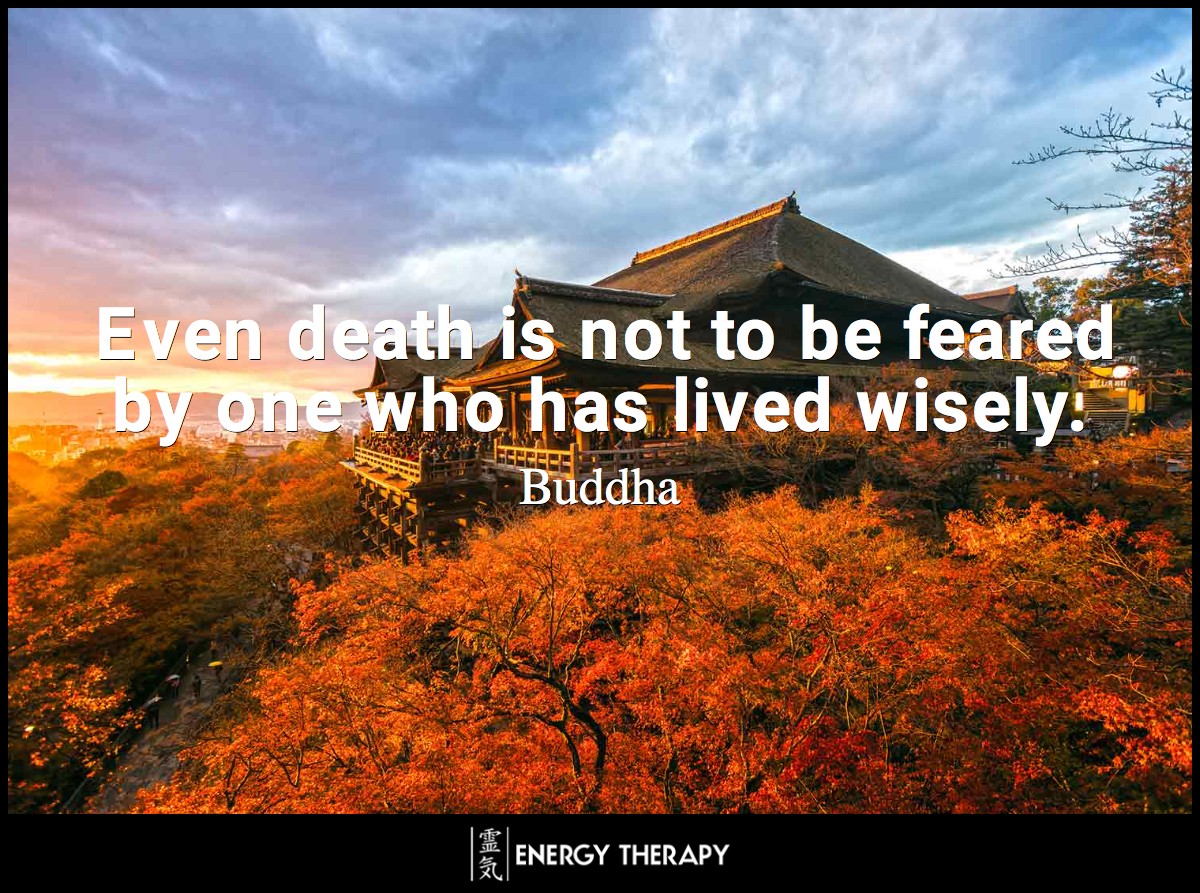The Five Levels of Attachment: Are your Beliefs Creating Pain For You and Others?
 Why do human beings get so damn attached to their beliefs? And, most importantly, why do they use an inappropriate level of attachment to create pain for themselves and others?
Why do human beings get so damn attached to their beliefs? And, most importantly, why do they use an inappropriate level of attachment to create pain for themselves and others?
Author don Miguel Ruiz Jr uses the analogy of supporting a football team and watching a game to show how beliefs (and attachments) can become distorted to the point of pain. Identification becomes internalisation which becomes fanaticism. At this level, there is no ‘discussion’ of differing beliefs – there is just you and the ‘the other’. The other has become your enemy and must be beaten or punished at all costs.
Football fans will be able to see an accurate reflection of their own level of attachment to a team (unless, of course, they don’t want to). But anyone can apply the meaning behind this analogy to any situation that is happening in life.
As per the book, the levels are:
- Authentic Self
- Preference
- Identification
- Internalization
- Fanaticism
The following is taken from Chapter 4 of Miguel’s book (NB: the American descriptive word ‘soccer’ has been replaced with the more common descriptive word ‘football’ for our international audiences).
Level One: The Authentic Self
Imagine that you like football, and you can go to a game at any stadium in the world. It could be a magnificent stadium or a dirt-filled field. The players could be great or mediocre. You are not rooting for or against a side. It doesn’t matter who is playing. As soon as you see a game, you sit, watch, and enjoy it for those ninety minutes. You simply enjoy watching the game for what it is. The players could even be kicking around a tin can, and you still enjoy the ups and downs of the sport! The moment the referee blows the whistle that ends the game–win or lose–you leave the game behind. You walk out of the stadium and continue on with your life.
At this level, you can enjoy a moment in time without any real attachment. You invested just enough of yourself to choose to attend or watch the game. This is you in total control of knowledge. You experienced the purest form of joy, stemming from your pure desire to experience life without conditions.
Level Two: Preference
This time, you attend a game–again, at any stadium in the world, with any teams playing–but now you root for one of the teams. You’ve realized that if you invest a little more of yourself by identifying a preference, the emotional roller coaster makes the game more exciting. You decide which team to root for based on just about anything–from the color of the uniforms to the names of the players. Perhaps you simply pick the home team. You spend the game rooting for one team but not necessarily against the other. Still, in the end, you walk out of the stadium and leave it all behind. At this level, you’ve invested a small piece of yourself in the game. You formed an attachment to something, however arbitrary, and based your decisions and actions on that attachment. You have engaged in a preference for a team.
You created a story of victory or defeat that shaped the experience, but the story had nothing to do with you personally, because the story was about the team. You engaged with the event and the people around you, but at the end of the game, you simply say, “That was fun,” and let go of the attachment. This ability to attach and detach easily allows you to invest an emotional side of yourself that will enjoy the ups and downs of a great game. Life is happening, and you are able to share it with those around you, regardless of how they see themselves.
Level Three: Identity
This time, you are a committed fan of a particular team. Their colors strike an emotional chord inside of you. When the referee blows the whistle, the result of the game affects you on an emotional level. This is your favorite team. You can still go to any stadium or field in the world, but nothing compares to seeing this team play. Your team, winning or losing, partially defines your character beyond the ninety minutes of the game. You feel elated when your team wins; when your team loses, you feel disappointed. But still, your team’s performance is not a condition of your own self-acceptance. And if your team loses, you’re able to accept the defeat as you congratulate the other side. You accept the victories and disappointments as part of the emotional roller coaster that makes life interesting, but your self-worth is not based on these outcomes. If you meet a fan of the opposing team, you see not only a football fan but also a fellow human being with whom you are willing to share a beer. You can sit together and discuss football and you can talk about how great you think your team is. You might even admit that you think their team is great as well. Your feelings and opinions surrounding your team are not a condition by which you relate to others or to yourself.
At this level, your attachment to your team begins to impact your personal life outside the stadium gates as you relate to the world as a fan. The separation isn’t quite as clear as it was at first. At Level Three, this culture, this team, has become a small part of your identity. When the event or moment passes, it still forms who you think you are. You take the knowledge with you and begin to shape parts of your life around this team, bringing it to other environments that have nothing to do with it. For example, if your team loses, you might have a bad day at work, argue with someone about what or who is responsible for the team losing, or feel sad despite the good things going on around you. No matter what the effect is, you’ve let an attachment change your persona. Your attachment bleeds into a world that has nothing to do with it.
Level Four: Internalization
Staying with our sports analogy, at Level Four your association with your favorite team has now become an intrinsic part of your identity. The story of victory and defeat is now about you. Your team’s performance affects your selfworth. When reading the stats, you admonish players for making us look bad. If the opponent team wins, you get angry that they beat you. You feel disconsolate when your team loses, and may even create excuses for the defeat. Of course you would never sit down with one of their fans in a pub for a friendly chat! You might even find yourself consumed with finding out more information about the players. On the other hand, each and every word of praise your team earns feels as though it is directed at you. Not only have you brought the game home, you have completely incorporated it into your persona, shaping your identity by your belief of what it means to be a “real” fan.
Although the team–the “piece of knowledge” in this story–has nothing to do with you in reality, your selfimportance correlates with your attachment. Your life and your attachment are so blurred that everything starts to revolve around this team. Your fellow fans had better behave, too, because they all represent these colors, and these colors mean something: they have value in your life. They had better fit what it means to be a real fan. Otherwise, they shouldn’t call themselves one. You find yourself debating how much better your team is outside the context of the game. You believe that anyone who doesn’t agree with you is wrong. This is the point where the belief has moved from an identity to internalization. When dealing with the fans of opposing teams, you will argue and shout, but it will stop short of fisticuffs. You can still limit your defense to just arguing. While you may have some friends who are not football fans, you much prefer the company of those who think like you. As your attachment grows, you might make your loyalty to this team a condition by which you allow others to be in a relationship with you, including yourself. In other words, you have internalized your attachment to such an extent that it has become a condition of self-acceptance. Thus, you begin to impose this image onto the people you love as well as the people you interact with in your everyday life.
Level Five: Fanaticism
At this level, you worship your team! Your blood bleeds their colors! If you see an opposing team’s fan, they are automatically your enemy, because this shield must be defended! This is your land, and others must be subjugated so that they, too, can see that your team is the real team; others are just frauds. What happens on the field says everything about you. Winning championships makes you a better person, and there is always a conspiracy theory that allows you to never accept a loss as legitimate.
There is no longer a separation between you and your attachment of any kind. You are a committed to your team through and through, a fan 365 days a year. Your family is going to wear the jersey, and they better be fans of your team. If any of your kids become a fan of an opposing team, you will disinherit them. Out! At Level Five, your family can easily be torn apart and destroyed if any one of you turns your back on the team. Relationships mean nothing to you unless they are a believer in your team. Every action you take, every decision you make, is within the rules that you think make a great fan. Of course, you can’t see anything from the point of view of someone who does not share your love of your team. If you did, you would be considered a traitor by your own standards. At Levels Three and Four you may still have friends who do not like football, but at Level Five you don’t waste your time with people who don’t love the sport. They do not know better. You choose not to have them in your life, and you are willing to fight for what you believe in. Your belief becomes more important than the experience. As your attachment grows, it can reach a culminating point where respect is lost even for humanity. In your eyes, a true fan is willing to die and kill for his team. It doesn’t even matter if the referee blows the whistle to start or end the game. It doesn’t even matter if they play football The symbol and the colors are more important than your own life or anyone else’s life.
Whenever we believe something without question, we are at risk for attachment at this most extreme level–and it can exist in the most unlikely places. If you are having difficulty relating to the sports analogy at this level of attachment, let me conclude with two real-life examples. At the end of one football season in Europe, a big name club was relegated into the second division, a lesser division. After witnessing that team’s final loss, a fan went home and hung himself. For him, life was no longer worth living if his team wasn’t in the Premier League. In another instance, a bus driver was a fan of a team that lost the Champions League final. He was so upset by this that he drove his bus into a group of people wearing the winning team’s jersey. Four people died for wearing the “wrong” colors. This man’s attachment to his team was so great he killed for it.
Fortunately, murder and suicide due to a favorite team’s loss are rare occurrences. But when we turn to topics such as religion, politics, or our ideas about money, sex, and power, the examples of attachment at this level are numerous. Turn on any news station and it’s easy to see. It’s important to realize that when we, or anyone else, become attached to a set of beliefs at this level, it is easy not to see the humanity of an individual since we can only see the personalization of an idea that we stand against.
At Level One, you can go to any church, synagogue, temple, mosque, or drum circle, and you will find and feel the love and grace of God. At Level Five, God just happens to be the focus of devotion that the religion is centered on; in other words, the religion is more important than God. Imagine spirituality, homeopathic remedies, or veganism. Apply the levels to race or ethnicity or sexual orientation. Apply it to love. The Five Levels of Attachment can be applied to any form of information, and suddenly the consequences become far less trivial.
While football is a good introduction to the Five Levels of Attachment because it breaks down the concept into fairly understandable parts, the purpose is for you to see how the levels play out in your own life. Ruiz explains the levels in detail in ensuing chapters in his book, giving the reader (you) a real opportunity to think about how attached you are to your various beliefs.
You will learn how to assess what level you are on for every belief that you have–not as a basis for self-judgment, but to perceive a deeper understanding of self.
Buy the book ‘The Five Levels of Attachment, and enjoy the unfoldment of a new wisdom that is practical and sound on every level.
Copyright 2013 The Five Levels of Attachment by don Miguel Ruiz Jr.
Enjoyed this article and want to know more? Here are some easy steps you can take right now…
- Book a life changing “remote healing session” with Soul Guidance with Jaime: https://www.energytherapy.biz/energy-healing-with-jaime-tanna/
- Join Jaime’s fantastic 1 year Energy Coaching Program: Total Frequency Shift — Discover Radiant Health & Freedom
- Sign up for Jaime’s exciting new substack at https://energytherapy.substack.com/https://energytherapy.substack.com/



















































